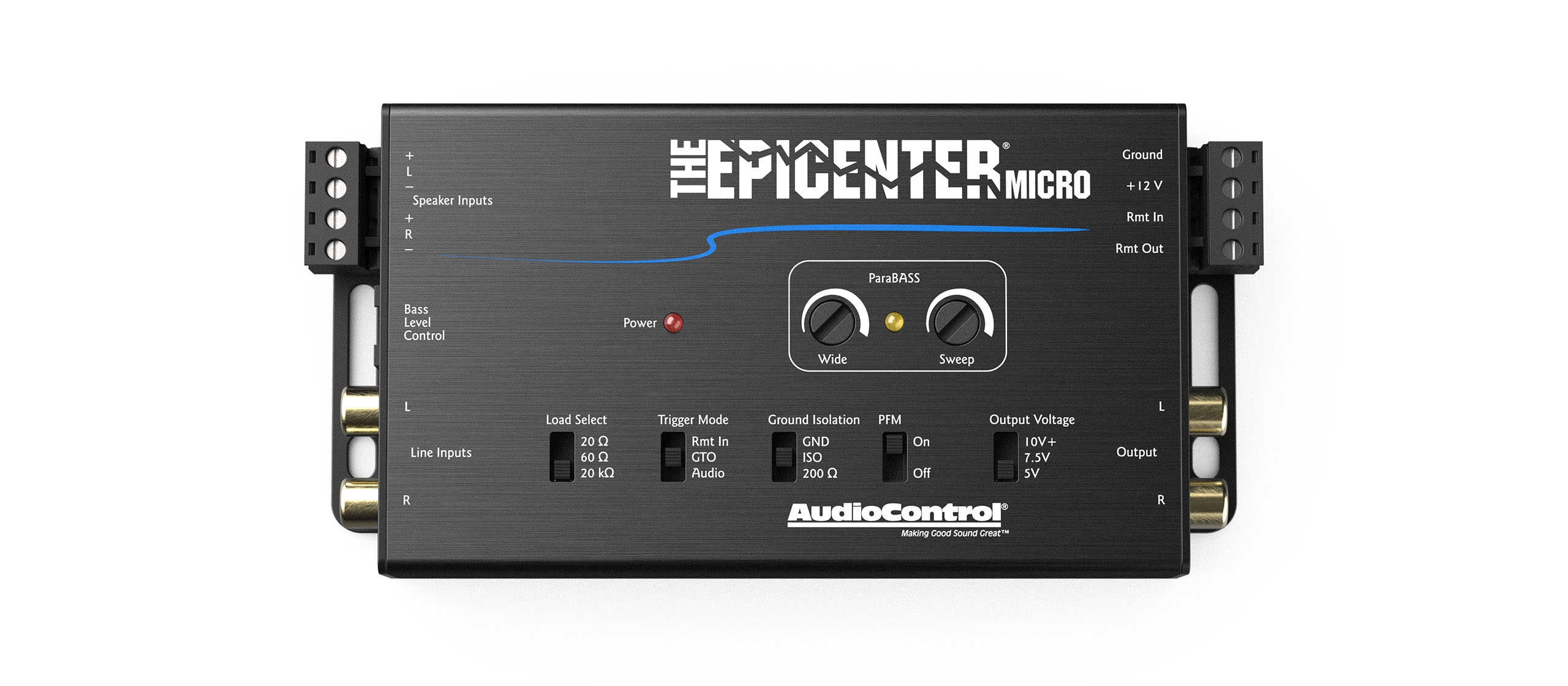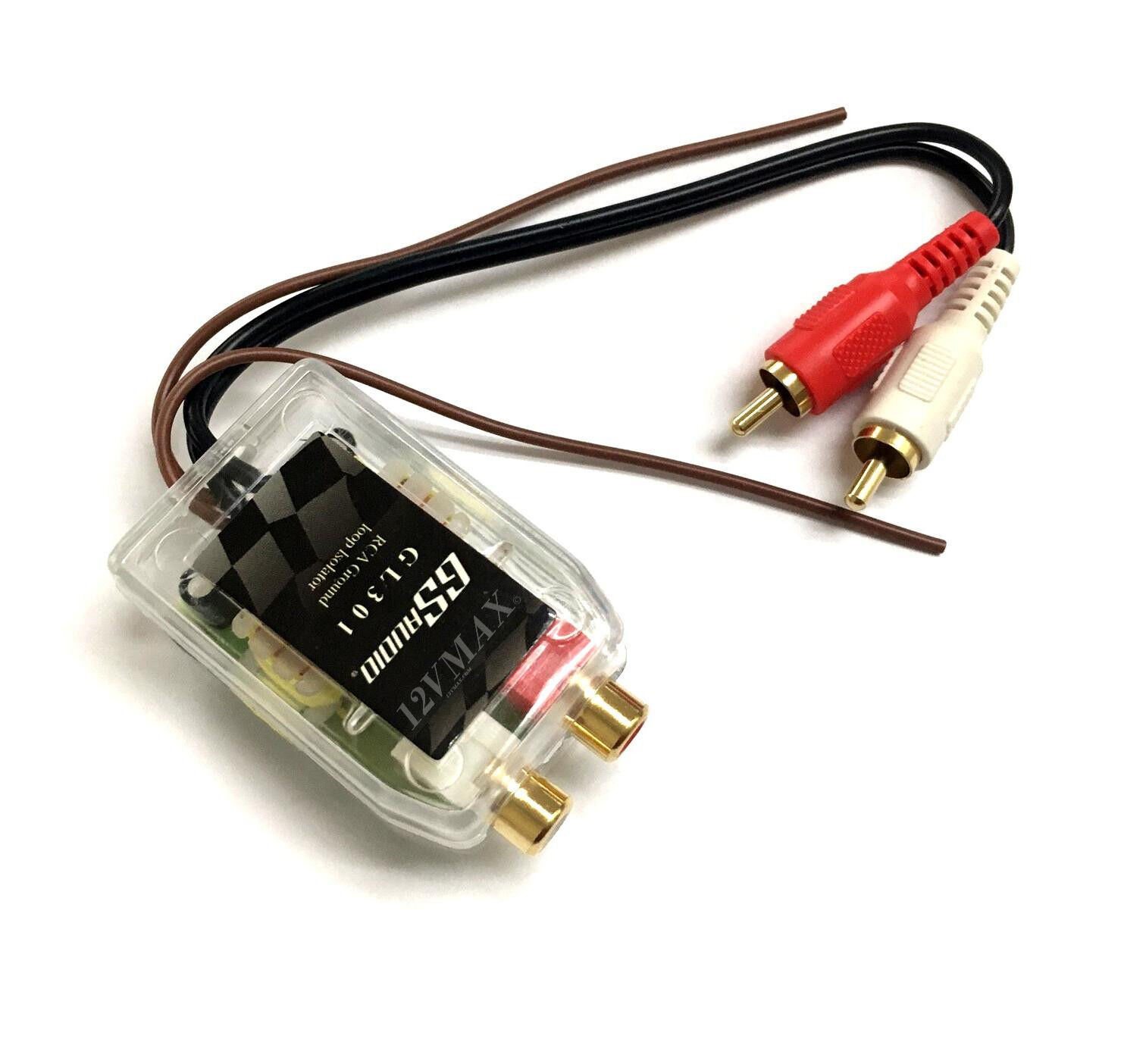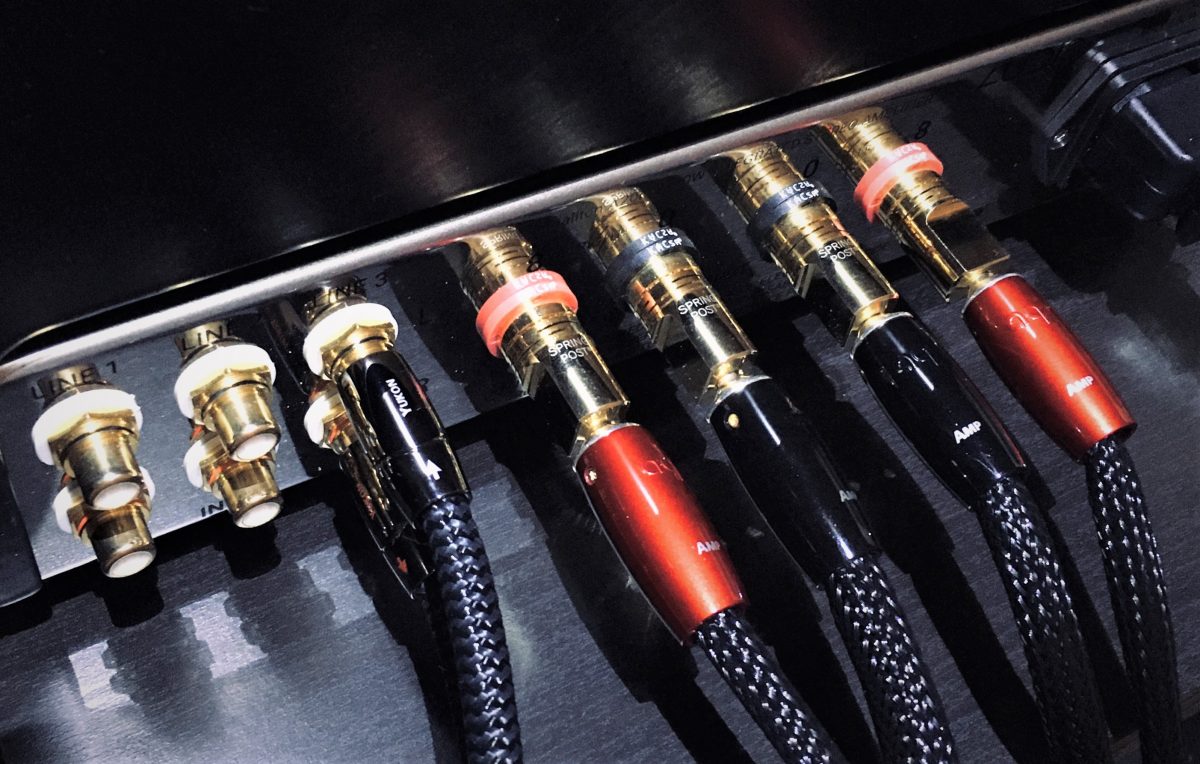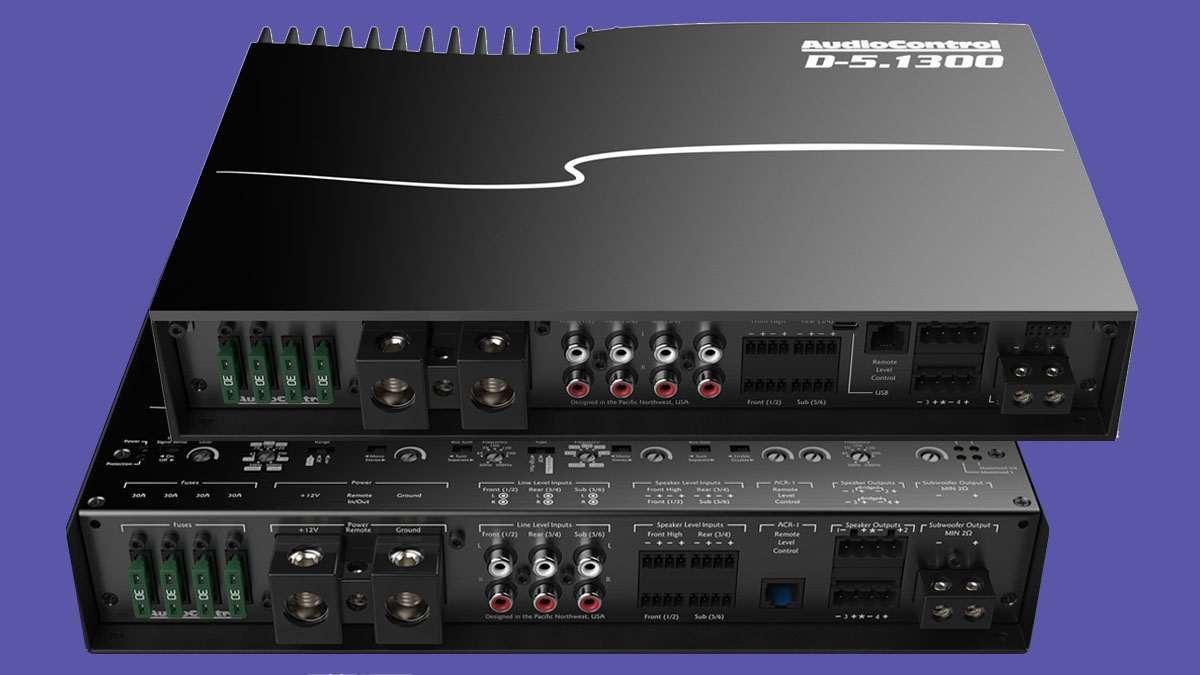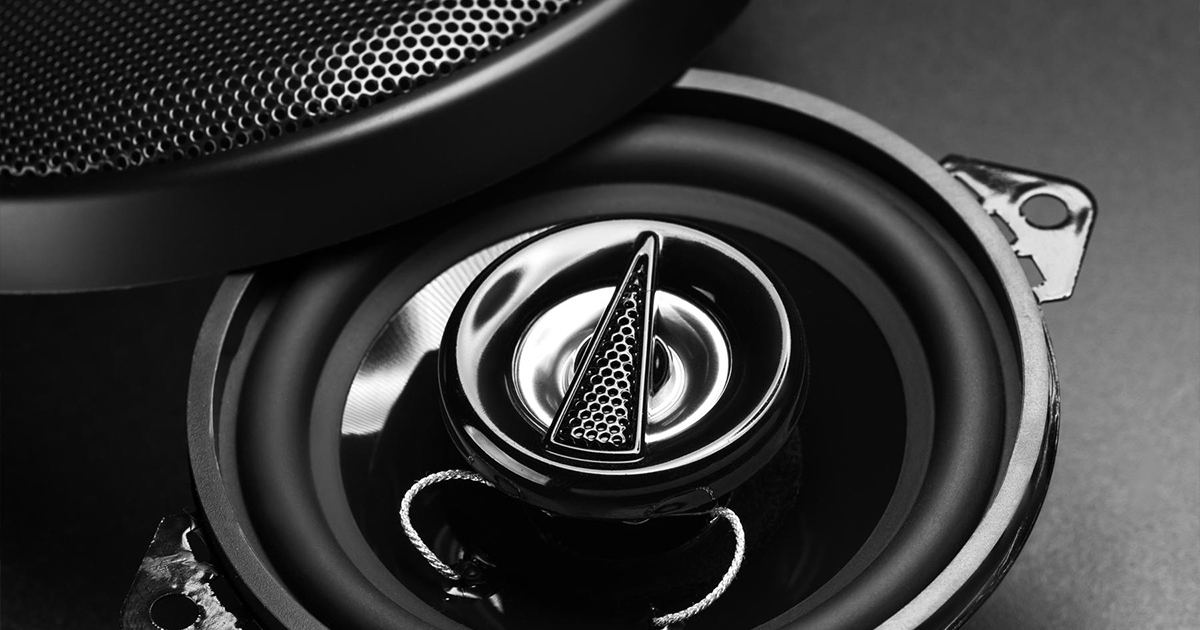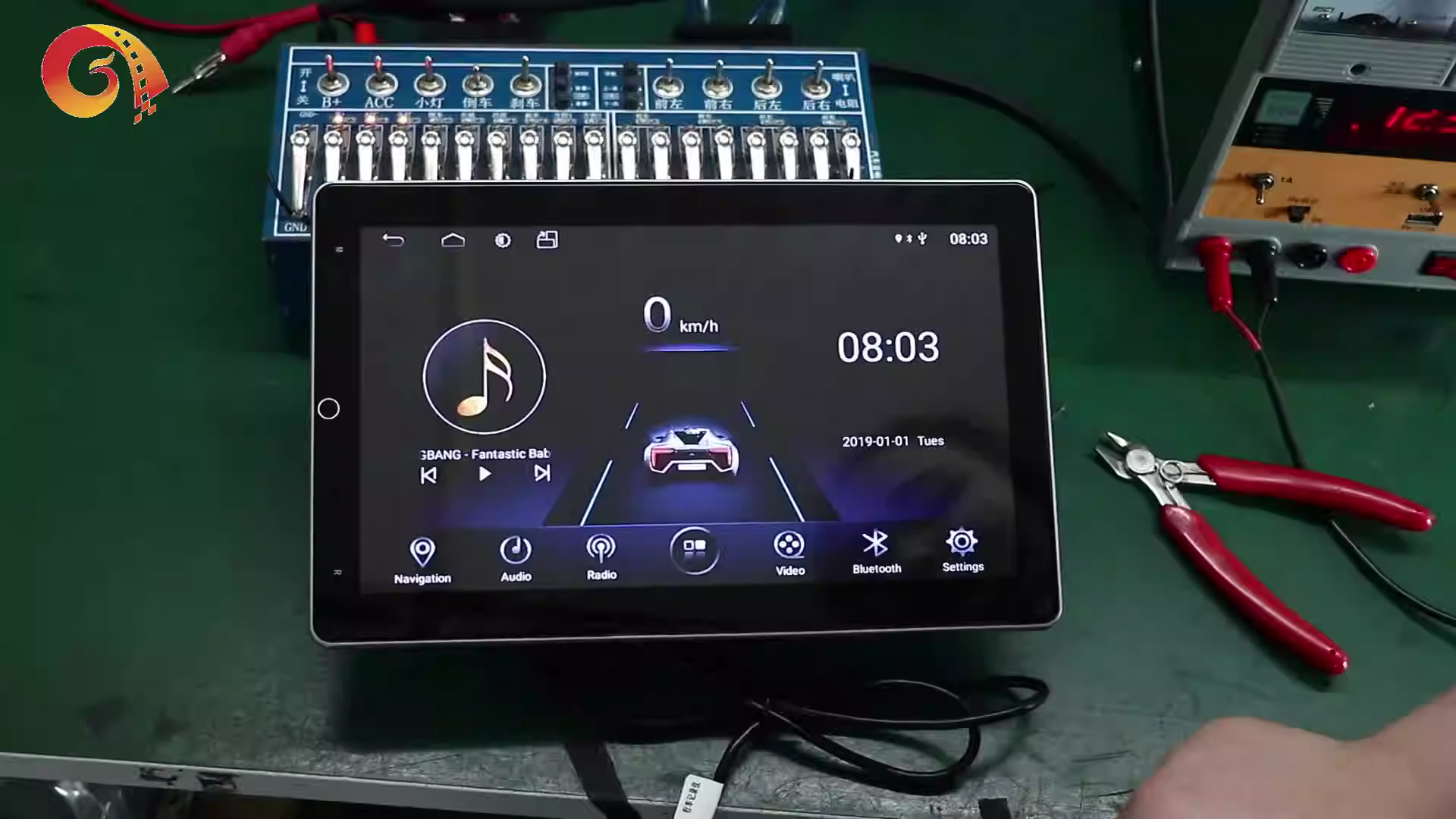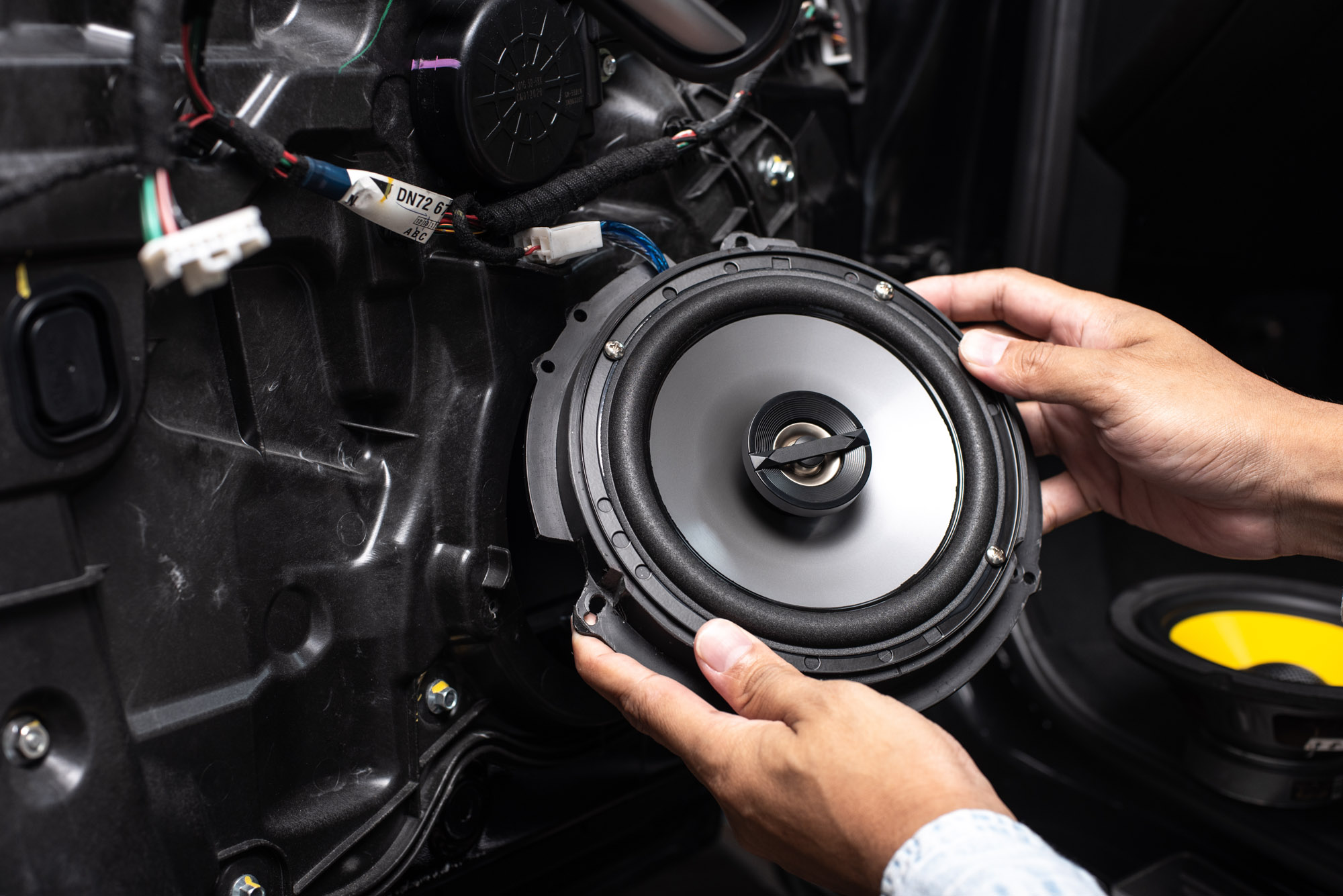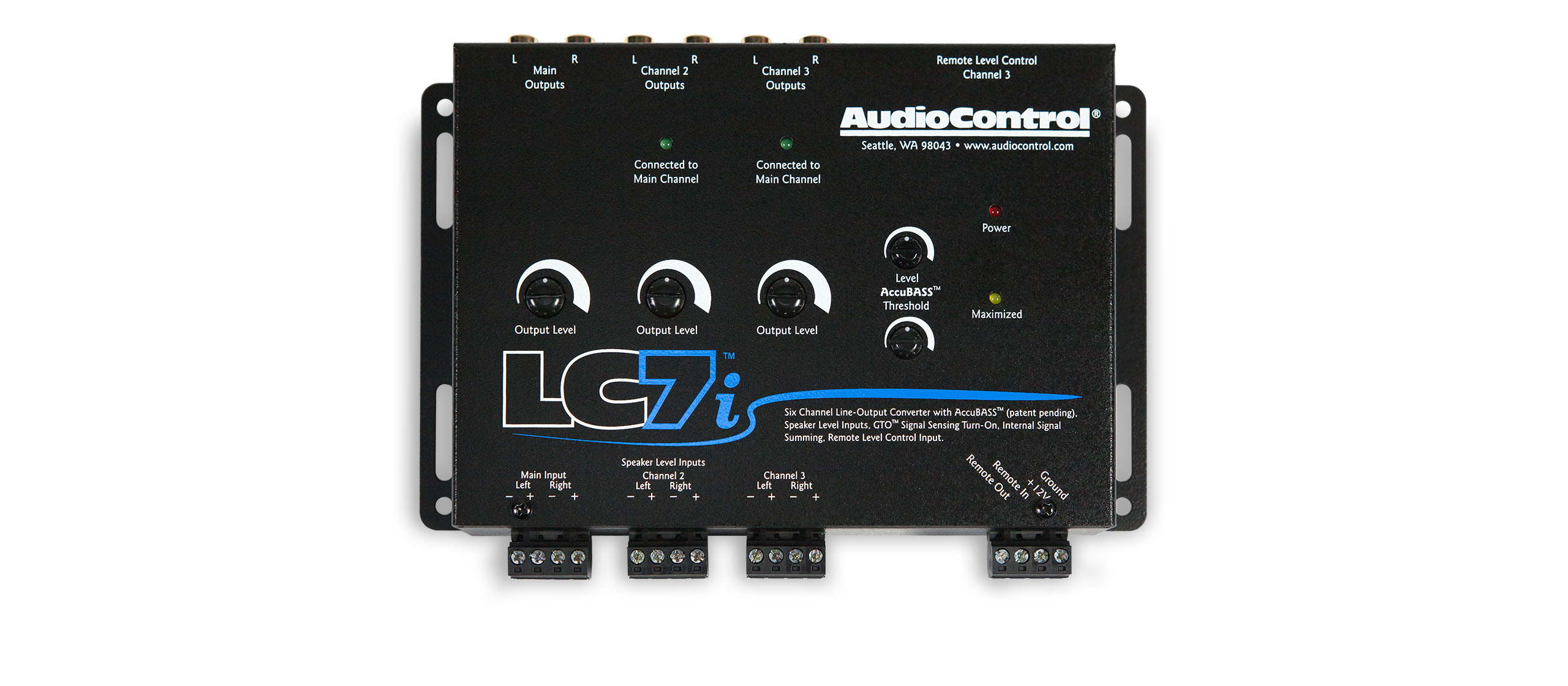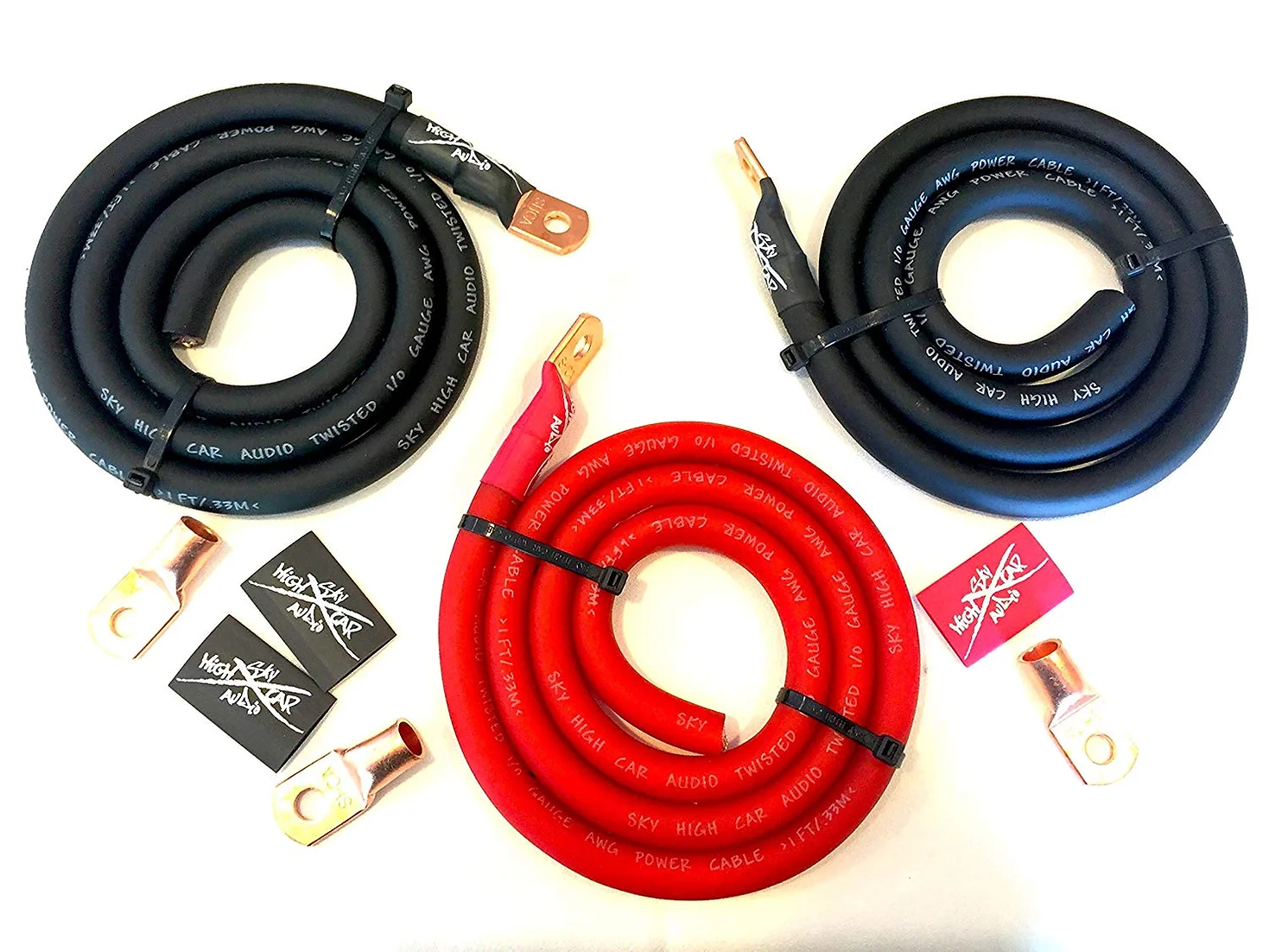Home>Devices & Equipment>Car Audio>What Is A Good Capacitor For Car Audio
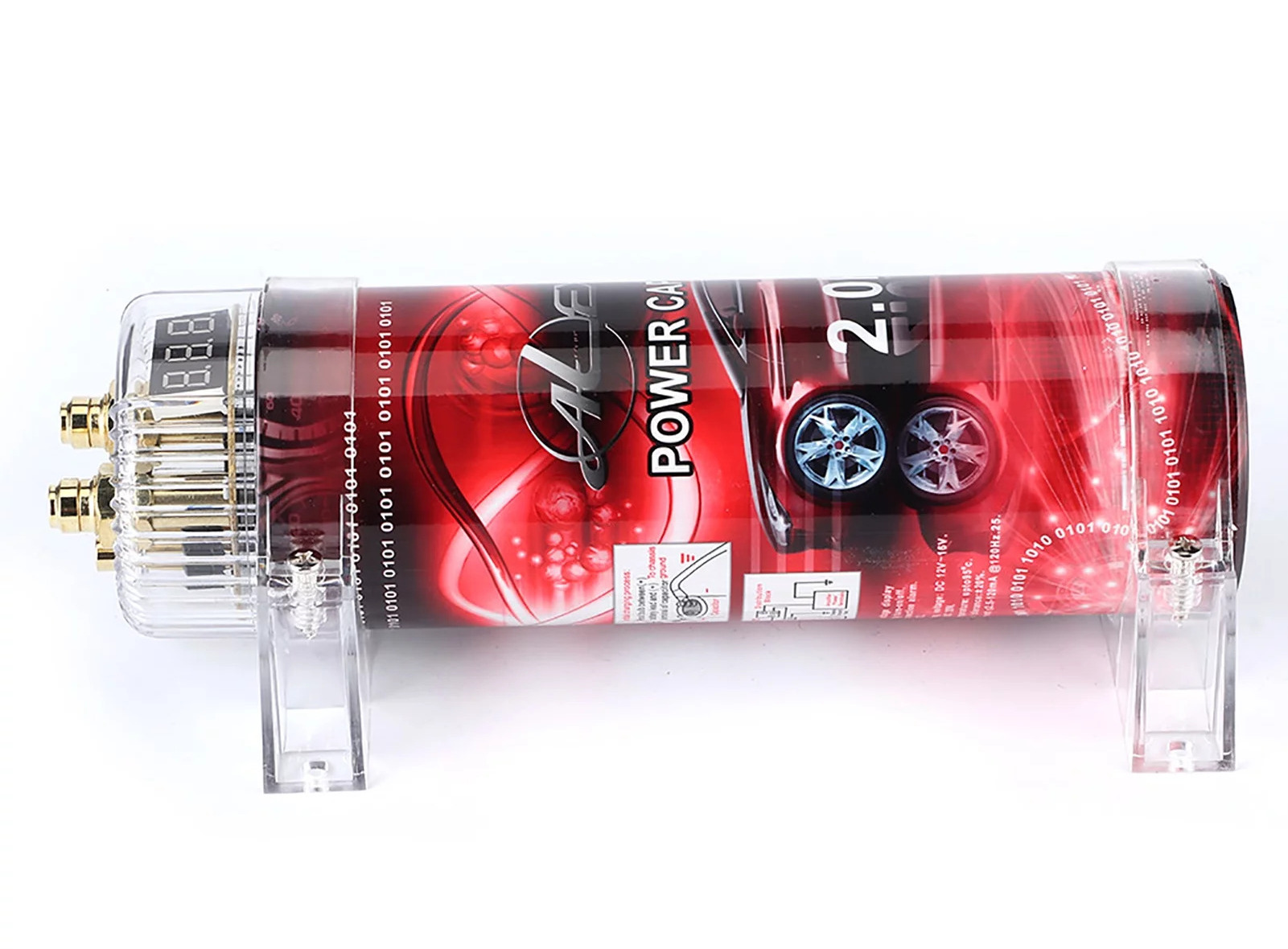

Car Audio
What Is A Good Capacitor For Car Audio
Published: February 5, 2024
Looking for a good capacitor for your car audio system? Discover the top choices and enhance your car audio experience with reliable and high-performance capacitors.
(Many of the links in this article redirect to a specific reviewed product. Your purchase of these products through affiliate links helps to generate commission for AudioLover.com, at no extra cost. Learn more)
Table of Contents
- Introduction
- Factors to Consider when Choosing a Capacitor for Car Audio Systems
- Capacitor Types for Car Audio
- Capacitor Capacitance Rating
- Voltage Rating for Car Audio Capacitors
- ESR (Equivalent Series Resistance) of Car Audio Capacitors
- Size and Form Factor of Car Audio Capacitors
- Installation and Compatibility Considerations
- Benefits of Using a Good Capacitor for Car Audio
- Conclusion
Introduction
Car audio systems have come a long way since the days of crackling AM radios and tape decks. Today, car owners are seeking immersive sound experiences that rival those found in high-end home entertainment systems. To achieve this level of audio quality, the car audio industry has advanced with cutting-edge technologies, and one crucial component in a car audio system is the capacitor.
A capacitor is an electronic device that stores and releases electrical energy in a controlled manner. In car audio systems, capacitors play a vital role in providing clean, consistent power to the amplifier. When programmed bass notes or sudden power surges demand more power than the car’s electrical system can handle, the capacitor acts as a buffer, ensuring a stable power supply to the amplifier. This not only prevents voltage drops but also reduces strain on the car’s electrical system.
Choosing a good capacitor for your car audio system is essential to ensure optimal performance and longevity. There are several factors to consider when selecting the right capacitor, including the type, capacitance rating, voltage rating, ESR (Equivalent Series Resistance), size, and form factor. In this article, we will delve into each of these factors to provide a comprehensive understanding of what makes a capacitor suitable for car audio applications.
It’s important to note that not all capacitors are created equal, and using an inferior or mismatched capacitor can lead to poor audio quality or even damage to your audio equipment. By understanding the key considerations and benefits of using a good capacitor for car audio, you can make an informed decision and enhance your overall listening experience while on the road.
Factors to Consider when Choosing a Capacitor for Car Audio Systems
When selecting a capacitor for your car audio system, there are several important factors to consider. These factors will determine the capacitor’s suitability for your specific audio setup and ensure optimal performance. Let’s explore these factors in more detail:
- Type: There are two main types of capacitors used in car audio systems: electrolytic capacitors and film capacitors. Electrolytic capacitors are more commonly used due to their higher capacitance ratings and lower cost. Film capacitors, on the other hand, offer better audio quality but are typically more expensive.
- Capacitance Rating: The capacitance rating determines how much energy the capacitor can store. It is measured in farads (F). Choosing the right capacitance rating depends on your audio system’s power requirements. A general rule of thumb is to have one farad of capacitance for every 1,000 watts of power.
- Voltage Rating: The voltage rating of the capacitor should be higher than the maximum voltage expected in your car’s electrical system. This ensures that the capacitor can handle any voltage spikes without getting damaged. Aim for a voltage rating of at least 20% higher than your system’s maximum operating voltage.
- ESR (Equivalent Series Resistance): ESR refers to the resistance that the capacitor presents to the flow of electric current. Lower ESR values are desirable as they result in better performance and less heat generation. Look for capacitors with low ESR values to ensure efficient power delivery.
- Size and Form Factor: Consider the available space in your vehicle for installing the capacitor. Capacitors come in different sizes and shapes, so choose one that fits comfortably in your car’s audio setup without obstructing other components.
Taking these factors into account will aid you in choosing a capacitor that is best suited for your car audio system. It’s crucial to understand the unique needs and specifications of your audio setup before making a purchase. By doing so, you can ensure that the capacitor seamlessly integrates into your system, delivering clean and consistent power to your amplifier.
Capacitor Types for Car Audio
When it comes to capacitors for car audio, there are two main types that are commonly used: electrolytic capacitors and film capacitors. Each type has its own characteristics and benefits, and choosing the right one depends on your specific requirements and preferences.
1. Electrolytic Capacitors: Electrolytic capacitors are widely used in car audio systems due to their high capacitance ratings and affordability. They are constructed with an electrolyte-filled capacitor cell, which allows them to store a large amount of electrical energy. These capacitors are available in various capacitance ratings, typically ranging from microfarads (uF) to farads (F). Electrolytic capacitors are suitable for handling the power demands of car amplifiers and deliver stable voltage output. However, they are more susceptible to temperature variations and have a higher Equivalent Series Resistance (ESR) compared to other types.
2. Film Capacitors: Film capacitors are another popular choice for car audio enthusiasts seeking high-quality sound reproduction. These capacitors are constructed using a thin film of dielectric material, such as polyester, polypropylene, or polystyrene. Film capacitors have lower ESR values, which result in better efficiency and reduced heat generation. They are also known for their excellent audio performance, offering a clean and accurate sound reproduction. However, film capacitors typically have lower capacitance values and are more expensive compared to electrolytic capacitors.
Ultimately, the choice between electrolytic capacitors and film capacitors comes down to your specific audio goals and budget. If you are looking for a budget-friendly option with high capacitance ratings, electrolytic capacitors are a good choice. On the other hand, if audio quality is your priority and you are willing to invest more, film capacitors are worth considering.
It’s important to note that both types of capacitors have their place in car audio systems, and the specific application and requirements of your setup will dictate which type is most suitable. Consulting with an experienced car audio professional or researching reviews and recommendations from trusted sources can help you make an informed decision and select the capacitor type that best meets your needs.
Capacitor Capacitance Rating
The capacitance rating of a capacitor is one of the most critical factors to consider when choosing a capacitor for your car audio system. It determines the amount of electric charge the capacitor can store and deliver to the amplifier.
Capacitance is measured in farads (F), but in car audio applications, capacitors are commonly rated in microfarads (uF) or millifarads (mF). The capacitance rating determines the energy storage capacity of the capacitor. In simpler terms, a higher capacitance rating means that the capacitor can hold more energy and provide a more substantial buffer against voltage drops.
When determining the appropriate capacitance rating for your car audio system, it is crucial to consider the power requirements of your amplifier. As a general rule of thumb, a capacitance rating of one farad (F) is recommended for every 1,000 watts (W) of amplifier power. So, if you have a 1,000W amplifier, a one farad (1F) capacitor would be suitable. For higher-powered amplifiers, such as 2,000W or more, you may consider using capacitors with capacitance ratings of 2F or higher.
It’s also essential to note that while a higher capacitance rating can help buffer against voltage drops, it does not necessarily result in better sound quality. The capacitance rating primarily affects the ability of the capacitor to maintain a stable voltage supply to the amplifier during sudden power demands or bass-heavy audio signals. The sound quality will still ultimately depend on other factors, such as the quality of the audio source, amplifier, and speakers.
Additionally, it’s worth mentioning that larger capacitance ratings usually result in physically larger capacitors. Therefore, it’s crucial to consider the available space in your vehicle when choosing a capacitor with a higher capacitance rating.
Ultimately, selecting the appropriate capacitance rating for your car audio system involves assessing your amplifier’s power requirements, available space, and budget. It’s recommended to consult with a car audio expert or refer to the manufacturer’s specifications to ensure you choose the right capacitor and achieve the desired performance from your system.
Voltage Rating for Car Audio Capacitors
The voltage rating of a capacitor is an important consideration when choosing a capacitor for your car audio system. It indicates the maximum voltage that the capacitor can withstand without getting damaged. Using a capacitor with a lower voltage rating than your system’s requirements can result in catastrophic failure and potentially damage your audio equipment.
When selecting a capacitor, it’s advised to choose one with a voltage rating that is higher than the maximum voltage expected in your car’s electrical system. This ensures that the capacitor can handle any voltage spikes or fluctuations that may occur during operation. It provides an additional safety margin and protects the capacitor from becoming overcharged or failing due to excessive voltage.
As a general guideline, aim for a capacitor with a voltage rating that is at least 20% higher than your system’s maximum operating voltage. For example, if your system operates at 12 volts, consider using a capacitor with a voltage rating of 14.4 volts or higher. This extra margin of voltage tolerance helps to safeguard your audio system and prolong the lifespan of the capacitor.
It’s worth noting that in some cases, your amplifier may have built-in voltage protection circuits. These circuits can help regulate and protect against voltage surges. However, it is still recommended to use a capacitor with an appropriate voltage rating as an added layer of protection.
Another important aspect of voltage rating is ensuring compatibility with your car’s electrical system. Many newer vehicles have electrical systems that operate at higher voltages, such as 24 volts. In such cases, it is essential to choose a capacitor that can handle the higher voltage requirements of your car’s electrical system. Verify the specifications of the capacitor to ensure it is compatible with your vehicle’s electrical system.
Overall, the voltage rating of a capacitor is a crucial consideration to ensure the safe and reliable performance of your car audio system. By selecting a capacitor with a higher voltage rating, you provide protection against potential voltage spikes and fluctuations, safeguarding your audio equipment from damage and ensuring a smooth and uninterrupted listening experience.
ESR (Equivalent Series Resistance) of Car Audio Capacitors
The Equivalent Series Resistance (ESR) is an important characteristic to consider when choosing a capacitor for your car audio system. ESR refers to the resistance that the capacitor presents to the flow of electric current. It is a crucial factor in determining the overall performance and efficiency of the capacitor in delivering power to your amplifier.
In car audio applications, lower ESR values are desirable as they indicate better performance. Low ESR capacitors have less internal resistance, resulting in more efficient power delivery and reduced heat generation. This means that a capacitor with low ESR will be able to provide a stable and clean power supply to your amplifier, ensuring optimal sound quality and preventing damage to the electrical components.
Capacitors with higher ESR values may not be able to handle rapid or large current demands effectively. This can lead to voltage drops, distortion in sound output, and possible damage to the amplifier. Therefore, it is recommended to choose a capacitor with a low ESR rating for the best performance.
When comparing different capacitors, it’s important to check the manufacturer’s specifications to determine the ESR value. Capacitors designed specifically for car audio systems often mention low ESR as a key feature. Additionally, it’s worth noting that capacitors with lower ESR ratings tend to be more expensive than those with higher ESR values.
It’s also important to select a capacitor with the appropriate capacitance rating and voltage rating while considering the ESR value. Capacitors with low ESR are available in a wide range of capacitance and voltage ratings, providing options for various audio system setups and power requirements.
In summary, when choosing a capacitor for your car audio system, it is crucial to consider the ESR value. Opting for a capacitor with low ESR ensures better power delivery, improved efficiency, and reduced heat generation. By selecting a capacitor with low ESR, you can enhance the performance and longevity of your car audio system, providing a superior listening experience on the road.
Size and Form Factor of Car Audio Capacitors
When choosing a capacitor for your car audio system, it’s essential to consider the size and form factor of the capacitor. The size and shape of the capacitor determine its compatibility with your vehicle’s audio setup and the available space for installation.
Capacitors come in various sizes and form factors, ranging from compact cylindrical designs to square or rectangular shapes. The size of the capacitor can vary depending on its capacitance rating and internal construction. Larger capacitance ratings often require physically larger capacitors.
It’s crucial to assess the available space in your vehicle and the location where you plan to install the capacitor. Ensure that there is enough space to accommodate the capacitor without obstructing other components or causing any interference. Consider the shape and dimensions of the capacitor to ensure a proper fit and a clean installation.
Additionally, it’s important to note that larger capacitors with higher capacitance ratings may require additional wiring and mounting arrangements due to their size and weight. Assessing the mounting options and requirements beforehand can help facilitate a smooth installation process.
On the other hand, if space is limited in your vehicle, there are compact capacitors available that offer a smaller footprint while still delivering adequate performance. These smaller capacitors are designed to fit in tight spaces and provide a suitable solution for vehicles with limited installation options.
It’s also worth mentioning that some capacitors come with mounting brackets or hardware to aid in installation. These additional accessories can provide flexibility in positioning and secure attachment of the capacitor in your vehicle.
When selecting a capacitor based on size and form factor, it’s crucial to balance your requirements for capacitance rating and available space. Consider consulting with a car audio professional or referring to the manufacturer’s specifications to ensure the chosen capacitor fits seamlessly into your audio system.
In summary, the size and form factor of a capacitor play a significant role in its compatibility with your car audio setup. By selecting a capacitor that fits properly and suits your available space, you can ensure a hassle-free installation and proper functioning of your car audio system.
Installation and Compatibility Considerations
When selecting a capacitor for your car audio system, it’s crucial to consider the installation process and compatibility with your existing audio setup. Proper installation and compatibility ensure that the capacitor functions effectively and integrates seamlessly into your system.
Here are a few important installation and compatibility considerations to keep in mind:
- Wiring and Connections: Ensure that you have the necessary wiring and connections to install the capacitor correctly. It’s essential to have the appropriate gauge of power and ground wires to handle the current demands of your amplifier and the capacitor. Follow the manufacturer’s instructions for proper wiring and make secure connections to avoid any potential electrical issues.
- Mounting Location: Identify a suitable mounting location for the capacitor within your vehicle. It should be easily accessible and secure to prevent any vibrations or movement during vehicle operation. Consider factors such as heat dissipation and protection from moisture or extreme temperature fluctuations.
- Compatibility with Audio System Components: Ensure that the capacitor is compatible with the rest of your car audio system components. This includes the amplifier, head unit, speakers, and any other accessories. Check the impedance, power ratings, and voltage requirements to ensure smooth operation and avoid mismatches that could harm your equipment.
- System Tuning: After installing the capacitor, it’s essential to properly tune your car audio system. Adjust the gain settings on the amplifier and any equalizer settings on the head unit or signal processor to optimize the performance and ensure a balanced audio output.
- Professional Installation: If you’re unsure about the installation process or lack experience in car audio installations, it’s recommended to seek professional assistance. Car audio professionals have the expertise to handle the installation correctly, ensuring proper functionality and preventing any potential damage to your vehicle or equipment.
By considering these installation and compatibility factors, you can ensure a successful installation and enjoy the benefits of using a capacitor in your car audio system. Remember to follow the manufacturer’s instructions and seek professional guidance if needed to achieve optimal results.
Benefits of Using a Good Capacitor for Car Audio
Incorporating a good capacitor into your car audio system can offer several notable benefits. Let’s explore some of the advantages of using a high-quality capacitor in your setup:
- Voltage Stability: One of the primary benefits of using a capacitor is maintaining a stable voltage supply to your amplifier. When there is a sudden demand for power, such as during bass-heavy audio signals or quick bursts of sound, a capacitor acts as a buffer, ensuring that the amplifier receives a steady and uninterrupted power supply. This prevents voltage drops, distortion, and potential damage to the audio equipment.
- Improved Sound Quality: By providing a stable power supply, a capacitor can enhance the overall sound quality of your car audio system. With a consistent voltage output, your amplifier can perform optimally, delivering clean and accurate sound reproduction. The improved power delivery reduces the chances of audio distortion and allows you to fully appreciate the nuances and details in your favorite music tracks.
- Reduced Strain on Electrical System: Car audio systems, especially those with high-powered amplifiers, can put a considerable strain on the vehicle’s electrical system. Utilizing a capacitor alleviates this strain by acting as a supplemental power source. By smoothing out the power demands, the capacitor decreases the load on the electrical system, minimizing the risk of electrical system failures and prolonging the lifespan of your battery and alternator.
- Protection against Voltage Spikes: Voltage spikes can occur in a car’s electrical system due to various factors, such as alternator glitches or sudden changes in power demands. A good capacitor helps protect your audio equipment by absorbing these voltage spikes and preventing them from reaching sensitive components. This safeguard reduces the risk of damage to your amplifier, speakers, and other audio devices.
- Improved Amplifier Efficiency: When the amplifier receives a stable and clean power supply, it operates more efficiently. This means that the amplifier can achieve its maximum output power without straining, resulting in improved overall system efficiency. A good capacitor contributes to this efficiency by ensuring that the amplifier operates within its specified voltage range and delivering optimum performance.
Incorporating a high-quality capacitor into your car audio system can significantly enhance your listening experience. From improved sound quality to increased system efficiency and protection against voltage spikes, a good capacitor offers a range of benefits that enhance the performance and longevity of your car audio setup.
When selecting a capacitor, it’s important to consider factors such as type, capacitance rating, voltage rating, ESR, size, and compatibility to ensure optimal results. By choosing the right capacitor for your specific needs, you can enjoy the benefits it brings to your car audio system for years to come.
Conclusion
Incorporating a good capacitor into your car audio system is a smart investment that can significantly enhance your listening experience on the road. By understanding the key factors to consider when choosing a capacitor, such as type, capacitance rating, voltage rating, ESR, size, and compatibility, you can make an informed decision and select a capacitor that suits your specific audio setup.
A high-quality capacitor offers numerous benefits for your car audio system. It provides voltage stability, ensuring a consistent power supply to your amplifier and minimizing voltage drops. This results in improved sound quality and prevents distortion, allowing you to enjoy music in its full glory. Additionally, using a capacitor reduces strain on your vehicle’s electrical system, protecting vital components and prolonging their lifespan.
When selecting a capacitor, it’s crucial to consider its type, such as electrolytic or film, depending on your audio goals and budget. Additionally, ensuring a suitable capacitance rating, voltage rating, and low ESR value are important for optimal performance. Size and form factor compatibility ensure a seamless installation within your vehicle.
Lastly, always follow the manufacturer’s instructions for proper installation and consider seeking professional assistance if needed. Proper installation and system tuning ensure that the capacitor functions effectively and integrates smoothly into your car audio setup.
With a high-quality capacitor, you can enhance the performance, sound quality, and longevity of your car audio system. So, take the time to choose a capacitor that meets your requirements and enjoy an immersive and exhilarating audio experience every time you hit the road.

